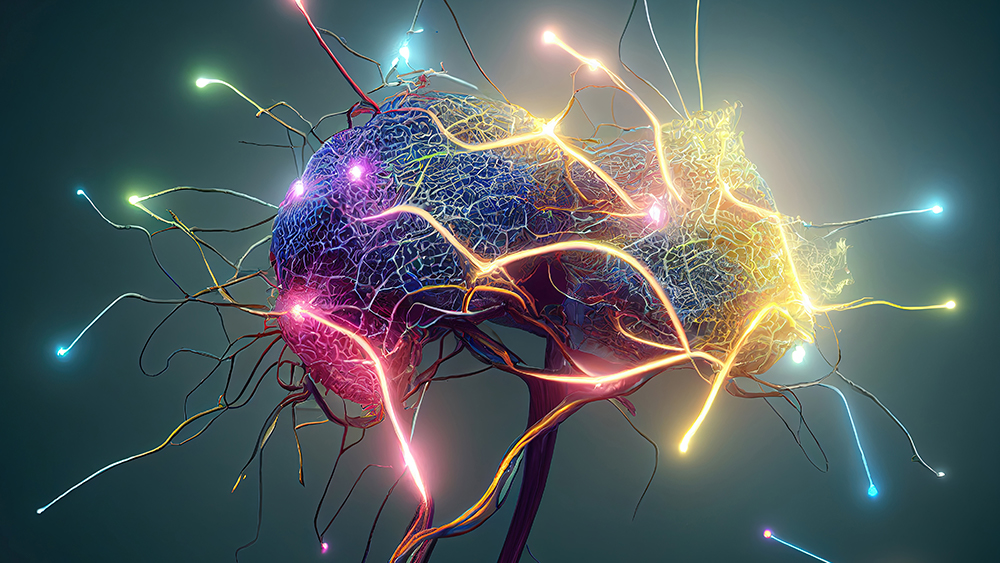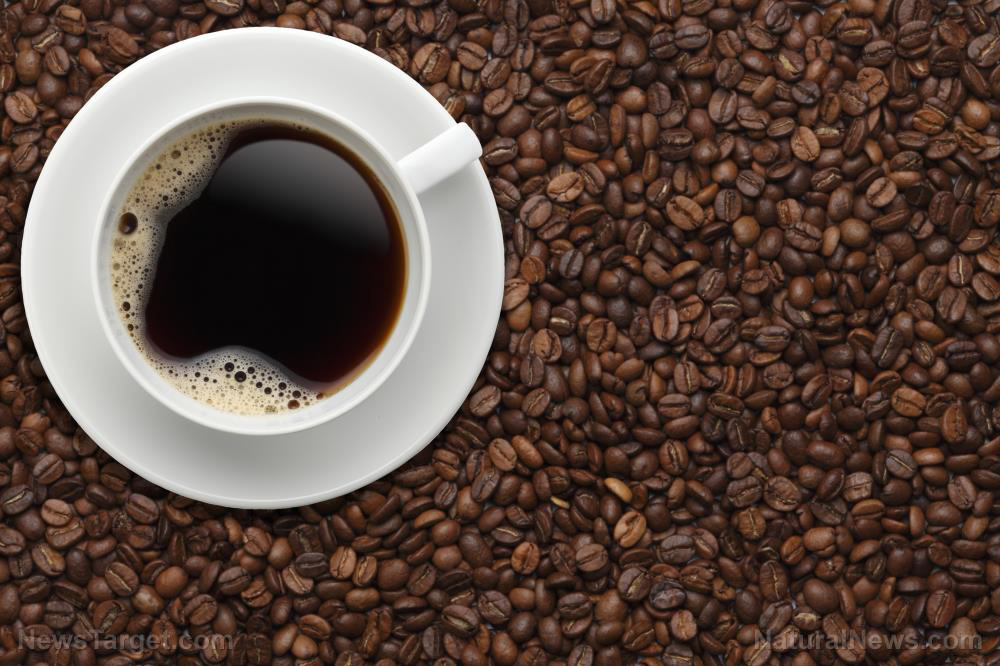 Parler
Parler Gab
Gab
- Resistance training slows age-related cognitive decline by enhancing brain-supporting myokines and metabolic health.
- Alzheimer’s biomarkers correlate with muscle strength decline, especially in women.
- Optimal protein intake (1.6-2.2g/kg) and varied resistance exercises are key to preserving muscle-brain health.
- Chronic metabolic issues like insulin resistance amplify dementia risks, mitigated by muscle-strengthening exercises.
- Leveraging weightlifting and protein-rich diets could prevent up to a third of Alzheimer’s cases, studies suggest.
The science unveiled: How muscles “talk” to the brain
The study from Sweden’s National Ageing database tracked 1,953 dementia-free seniors, measuring blood proteins linked to Alzheimer’s (e.g., tau and neurofilament light chain) and muscle strength over 12 years. Higher biomarker levels predicted faster declines in grip strength and leg strength (via chair-stand test), with women showing stronger associations than men. These biomarkers reflect damage to neurons and glial cells in the brain. “Skeletal muscle is an endocrine organ, releasing myokines that nourish the brain,” explains neurologist Dr. Margarita Mikhaylova. These molecules, including BDNF and IL-6, reduce inflammation, boost neuron growth and improve insulin sensitivity. Resistance exercise amplifies myokine production, while muscle loss — a natural process after 50 years (“sarcopenia”) — weakens this protective effect. Metabolic factors further explain the link: muscles regulate blood sugar, and insulin resistance — a hallmark of diabetes — is linked to higher dementia risks. “Diabetes patients have a 77% higher depression risk and elevated Alzheimer’s likelihood,” notes psychiatrist Dr. Lane Flannery, referencing metabolic and brain imaging studies. Resistance training improves insulin sensitivity and stabilizes blood sugar, buffering the brain from glucose deprivation.Gender and genetics: Why women bear more risk
The Swedish study’s gender disparities highlight a critical detail: women’s cognitive health may be more dependent on muscle metabolism. Women showed sharper declines in chair-stand performance (leg strength) tied to Alzheimer’s biomarkers, which partly stemmed from cognitive decline itself. This suggests that muscle loss and brain disease feed into a vicious cycle, amplified by biological factors like menopause, which accelerates muscle deterioration. “We’re still unraveling how estrogen interacts with muscle-brain signals,” says Mikhaylova. Meanwhile, genetic predisposition looms large: while Alzheimer’s is 5-10% genetic for most, lifestyle choices dictate outcomes. Studies show twins’ brain ages diverge more due to environment than genetics, underscoring the importance of intervention.Protein, plate and progress: Tailoring diets for brain resilience
Building muscle requires more than a gym membership—it demands a nutritional upgrade. “Protein intake is foundational,” advises registered dietitian Debbie Petitpain. A 140-pound adult needs 224-308 grams weekly (31-44g daily), sourced strategically to maximize absorption. Animal proteins (chicken, eggs) lead in bioavailability, while plant-based eaters need complementary proteins — e.g., lentils + quinoa — to secure all nine essential amino acids. Leucine, a “muscle trigger” amino acid, takes center stage: 2-4g per meal (via whey, salmon, or soy) fosters growth. To distribute intake evenly, Petitpain designs meals like Greek yogurt parfaits for breakfast and kefir-based smoothies for snacks. “Spreading protein across six small meals works better than one heavy meal,” she says. Exercise routines should blend resistance and recovery. A thrice-weekly mix of squats, bands and bodyweight training is ideal. “Even light weights suffice — if you fatigue in 15 reps, it’s challenging enough,” adds Flannery. Sleep is nonnegotiable, as muscles rebuild during REM cycles, spurring BDNF production.Empowering aging populations
With Alzheimer’s cases projected to triple by 2050, the muscle-brain axis offers actionable hope. Public health initiatives could prioritize integrating strength training into preventive care, much like cardiac exercise programs. “The cognitive benefits of two weekly weight sessions match aerobic exercise,” notes Mikhaylova. Progress is already visible: the Weill Cornell Alzheimer’s Prevention Clinic uses resistance training alongside diet plans to target metabolic risk factors. Patients like Millard illustrate the payoff: “My balance improved, but so did my ability to recall names and directions.”Lifting the burden, one rep at a time
The muscle-brain connection isn’t just scientific — it’s personal. For aging populations, it’s a wake-up call to value strength beyond aesthetics. As lifespans expand, preserving cognitive vigor hinges on policies encouraging accessible gyms and nutrition education. Margaret Millard’s story isn’t an anomaly — it’s a blueprint for a future where longevity comes with vigor, not vulnerability. Whether through dumbbells or resistance bands, the message is clear: what we do for our muscles may be the best gift we can give our brains. Sources for this article include: TheEpochTimes.com PsychologyToday.com TheLancet.comThe overlooked powerhouse: How vitamin K1 could transform your heart health
By Lance D Johnson // Share
Kudzu: The versatile vine with healing powers
By Ava Grace // Share
The bitter truth: Why black coffee may add years to your life (but lattes won’t)
By Ava Grace // Share
Hidden calorie trap: How ultraprocessed foods make you overeat without realizing it
By Cassie B. // Share
Governments continue to obscure COVID-19 vaccine data amid rising concerns over excess deaths
By patricklewis // Share
Tech giant Microsoft backs EXTINCTION with its support of carbon capture programs
By ramontomeydw // Share
Germany to resume arms exports to Israel despite repeated ceasefire violations
By isabelle // Share










